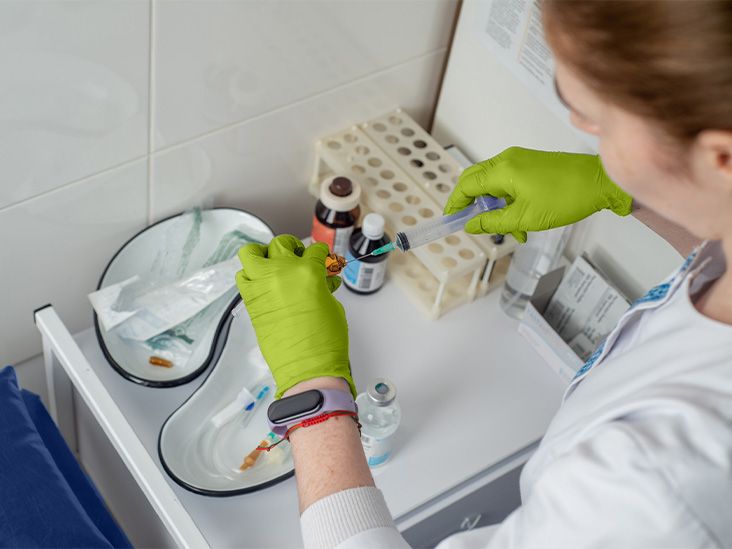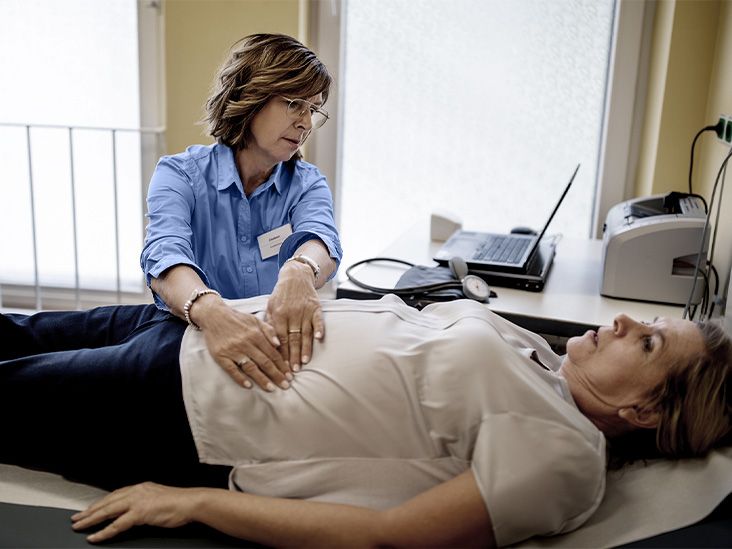Treatment for stomach cancer can depend on the specific location of the cancer and how far it has spread. Options can include surgery, chemotherapy, targeted drugs, immunotherapy, radiation therapy, or palliative care.
In 2020, stomach cancer was the
This article discusses the various treatment options available for stomach cancer, including how they work, examples, and side effects.

Surgery is a
The exact type of surgery depends on the location of the cancer.
According to the
The goal of surgery is to remove the tumor along with some of the surrounding healthy tissue to prevent cancer spread. Types of surgical procedures for stomach cancer include:
- Endoscopic resection: Endoscopic mucosal resection (EMR) and endoscopic submucosal dissection (ESD) can treat some very early stage cancers. It might also include when a doctor believes the tumor has not grown into the stomach wall, meaning the chance of spread is very low.
- Gastrectomy: This
involvesTrusted Source the removal of part or all of the stomach, depending on the extent of the cancer. - Lymph node dissection: This involves
removingTrusted Source nearby lymph nodes to check for the spread of cancer.
While surgery can be highly effective in treating early stage stomach cancer, it may carry risks, including infection, bleeding, and complications related to anesthesia.
Success rates for surgery vary depending on various factors, such as the cancer’s stage.
Learn more about surgery for stomach cancer.
Chemotherapy — or chemo — is a treatment that
A person may take chemotherapy drugs orally or intravenously (IV). Doctors typically give the treatment in cycles with rest periods in between. They may
- fluorouracil (5-FU)
- oxaliplatin
- cisplatin
- docetaxel
While chemotherapy can be effective, it is quite invasive and causes severe side effects during and after treatment. A doctor will usually prescribe chemotherapy when the benefits likely outweigh any adverse effects. Some of the common side effects include:
Success rates for chemotherapy vary depending on the stage of the cancer and the individual’s response to treatment.
Learn more about chemotherapy for stomach cancer.
Targeted drug therapy
A doctor may suggest biomarker tests to
Some of the types of targeted drug therapy include:
Targeted therapy drugs can improve survival rates in some people with advanced stomach cancer. However, they may also cause side effects, such as:
- diarrhea
- liver problems
- high blood pressure
- mouth sores
- nail changes
- heart failure
A doctor may also prescribe medication to help prevent side effects or treat them once they occur. Most side effects of targeted therapy go away after treatment ends.
Learn more about targeted therapy.
Immunotherapy is a type of cancer treatment
Several types of immunotherapy treat cancer, but some may be
Some types of immunotherapy include
Immunotherapy can also cause side effects, such as:
- fatigue
- skin rashes
- inflammation of the lungs or other organs
Learn more about immunotherapy.
Radiation therapy
The
Radiation therapy can also help relieve symptoms, such as pain or difficulty swallowing, in people with advanced stomach cancer. However, it can also cause side effects, such as:
- fatigue
- nausea
- skin irritation
- low blood cell counts
These side effects usually clear up within a few weeks after the treatment. When radiation is given with chemotherapy, side effects may be worse sometimes.
Learn more about radiation therapy.
Palliative care
Healthcare providers can offer palliative care at any stage of cancer.
It may include:
- pain management
- nutritional support
- emotional support for both the individual and their family
Doctors can provide palliative care alongside other treatments or as the main focus of care for people who are not eligible for aggressive treatment.
Learn more about palliative care.
Treatment for stomach cancer often involves a combination of surgery, chemotherapy, targeted drug therapy, immunotherapy, radiation therapy, and palliative care.
Each treatment option has its own set of benefits, risks, and success rates, depending on factors, such as the cancer’s stage and the person’s overall health.
By working closely with a team of healthcare professionals, people can receive treatment plans for their individual needs to achieve the best possible outcomes in their battle against stomach cancer.



